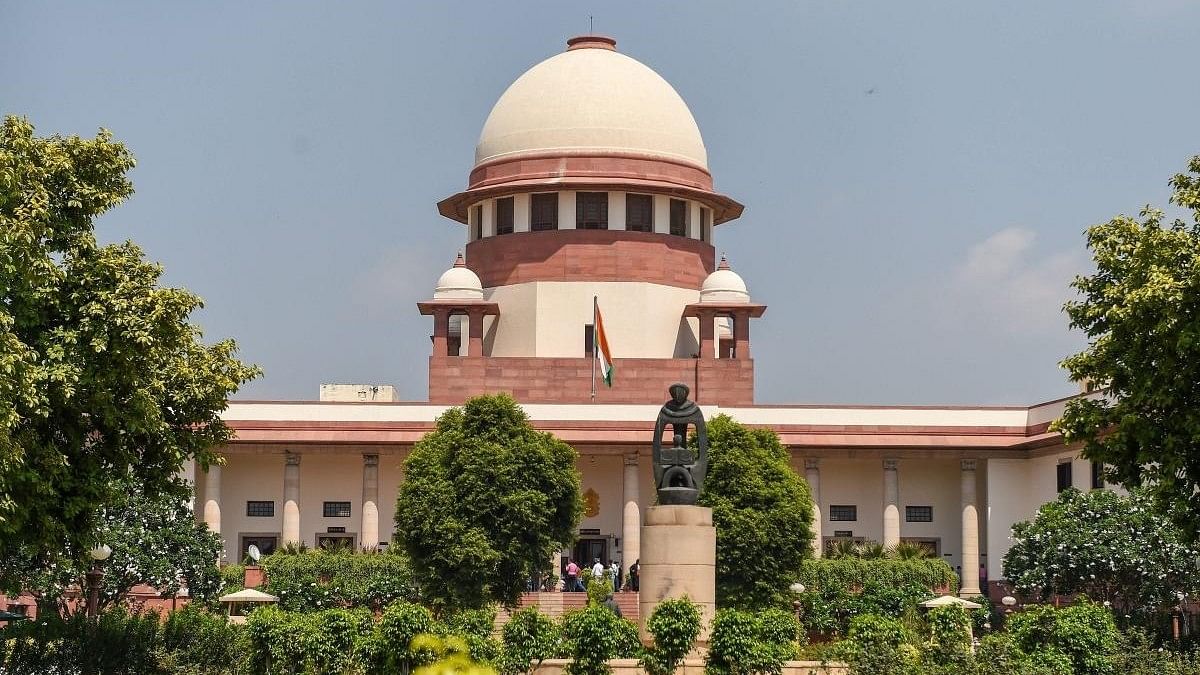
Supreme Court of India
Credit: PTI File Photo
The Supreme Court has advised the authorities against adopting stereotypical approach in dealing with a plea for premature release of life term convicts as it may result in indefinite period of incarceration defeating the purpose of remission.
A bench of Justices S Ravindra Bhat and Prashant Kumar Mishra said the remission board should not entirely rely either on the presiding judge, or the report prepared by the police.
"It would serve the ends of justice if the appropriate government seeks a report contemporaneously prepared by a qualified psychologist after interacting/interviewing the convict that has applied for premature release," the bench said.
The apex court said for premature release, the government should consider jail conduct -- whether they were engaged in any socially aimed or productive activity -- and the overall development as a human being.
"If a stereotypical approach in denying the benefit of remission, which ultimately results in premature release, is repeatedly adopted, the entire idea of limiting incarceration for long periods (sometimes spanning a third or more of a convict’s lifetime and in others, result in an indefinite sentence), would be defeated,” the bench said.
The top court said the government could review the convict’s age, state of health, familial relationships and possibility of reintegration, extent of earned remission, and the post-conviction conduct including, but not limited to, whether the convict has attained any educational qualification whilst in custody, volunteer services offered, job/work done, jail conduct, whether they were engaged in any socially aimed or productive activity, and the overall development as a human being.
The bench said it could result in a sense of despair and frustration among inmates, who might consider themselves reformed, but continue to be condemned in prison.
“The board (remission board) thus should not entirely rely either on the presiding judge, or the report prepared by the police. In this court’s considered view, it would also serve the ends of justice if the appropriate government had the benefit of a report contemporaneously prepared by a qualified psychologist after interacting/interviewing the convict that has applied for premature release”.
On a writ petition by Rajo, who was serving life term for 24 years, without remission or parole, the bench said the reason for rejection of his applications twice was the adverse report by the presiding judge in the first round, which was perfunctorily relied upon and reiterated in the report submitted by the then presiding judge in the second round as well.
“Both the reports submitted by the presiding judges (at the relevant time), demonstrate a casual opinion, based solely on the judicial record which presumably consisted of the finding of guilt, by the trial court and High Court," the bench said.
The court directed remission board (headed by Home Secretary) to consider his plea afresh considering the reports of the police and other authorities, the post-prison record of the petitioner, the remissions earned (including that which is earned for good conduct) his age, health condition, family circumstances, and his potential for social engagement, in a positive manner. It also ordered the presiding judge to give his opinion by giving adequate reason."With the benefit of this new report, the board may reconsider the application – without entirely or solely relying on it, but treating it as valuable (maybe weighty) advice that is based on the judicial record," the bench said, adding the decision should be taken at the earliest, preferably within three months.
